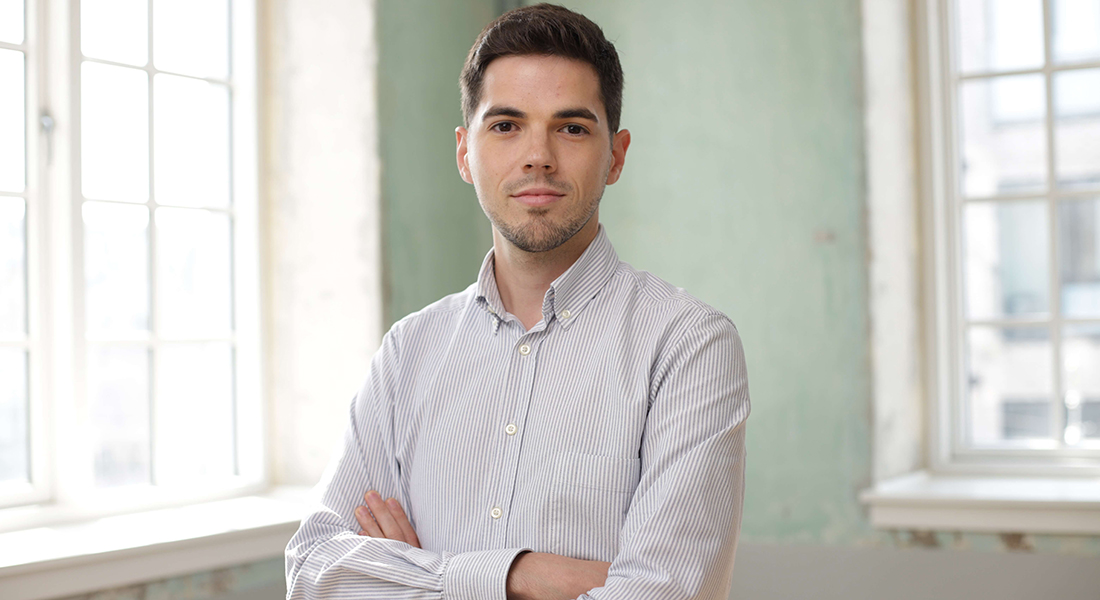Meet Albert Giner

Albert Giner, a graduate of the M.Sc. in Global Development, shares his journey from studying public management in Barcelona to working as a Partnerships Consultant at UNICEF Denmark. In this interview, Albert reflects on the importance of both the academic knowledge and the soft skills gained from the program.
Can you tell us a bit about yourself (where you're from, your academic background, etc).
My name is Albert Giner, I’m 31 years old and I’m from Barcelona. I graduated from my bachelor’s degree in public management and administration at the University of Barcelona in 2017. After graduating, I had the opportunity to work a few years for the Catalan Ministry for European Union and Foreign Action. During that time, I had the privilege to represent the Government of Catalonia to the Nordic Countries and Baltic States, both based in Copenhagen and Stockholm, where I would contribute to building friendly and lasting relations between these regions. This past month of June I have graduated from the M.Sc. in Global Development and I’m currently working for UNICEF in Copenhagen.
Why did you choose to study Global Development at UCPH and how has your experience been as a graduate?
I have always been interested in the development and humanitarian sector, but it was not until I moved to the Nordic region I realized about its importance and my wish to be part of it. The Nordic countries are pioneers in this sector, they are committed contributors to official development assistance, and it is easy to find many successful stories of Nordic funded initiatives from the field. Unsurprisingly, here you can find some of the best educational programmes in this field of study, and the M.Sc. in Global Development at UCPH struck me as one of the best. Now, as a graduate, I can only recommend it. I did not only grow as a professional but also as a person.
What do you highlight the most from this experience?
What I highlight the most from this experience is my amazing classmates. Imagine a study environment with people from all around the world – from the USA to Indonesia, from Finland to Uganda – with different academic backgrounds, and interesting stories to share from their past as young professionals. I learned a lot attending lectures and master classes, but what I enjoyed the most was all the really inspiring conversations and discussions I had with my classmates during group work. Our fieldtrip to Nepal is one of the best examples. Despite all the challenges we had, we succeeded in our research assignment. I will always remember the brainstorming conversations we had by the hotel pool, or wandering around the streets of the little town of Sauraha.
What was your employment situation after finishing the degree?
After graduating from my master’s, I was offered a job position at UNICEF Denmark, where I did my academic internship and worked as a student assistant until graduating. As of current, my job title is Partnerships Consultant at the Partnerships Department. The main goal of our department is to outreach and fundraise from the biggest multinational business corporations, and corporate foundations, headquartered in Denmark. I am specifically placed in the New Business team where we help our department, and UNICEF Denmark overall, secure new partnerships and funding to advance children’s rights around the world. Since then, I have been responsible for developing a long-term New Business strategy, mapping out opportunities for engaging in partnerships based on the interests of the Danish private sector and the needs from UNICEF regional and country offices around the world.
What advice would you give to current GD students and recent graduates?
As a recent graduate, I have realized that the most important things that I take with me are all those skills and abilities I have acquired or strengthened by participating in this master programme. Of course all the knowledge acquired during this master about global development theories, current issues and facts about the world, applied research methodologies, etc. is extremely important. However, this master programme has also provided me with the opportunity to develop or strengthening soft skills and abilities that I find extremely useful: critical-thinking, problem-solving, creative mindset… All these soft skills have been essential in my current workplace and valued by my colleagues. Therefore, my advice would be to be as open-minded as possible, try new things in different ways, learn from your classmates and help each other out. Everyone around you have valuable insights about the world and ways to approaching it. Lean on to that. It will pay off.
